
Feb 4, 2013 | News & Press
The Cordoba Foundation (TCF) commemorates the UN designated World Interfaith Harmony Week which takes place annually in the first full week of February. The week provides a platform from which all people of goodwill can recognize that the common values they hold far outweigh the differences they have, and thus provide a strong dosage of peace and harmony to their communities
Commenting on this, the Chief Executive of TCF, Anas Altikriti said ‘The start of 2013 has been marred with inter and intra faith clashes across much of the world. More initiatives that can allow people to come together and acknowledge each other’s uniqueness whilst working for the common good needs to be encouraged’.
Now more than ever is the need to move towards a sense of peace and mutual respect for people of faith and no faith. Religious scriptures all envision a pluralistic world, mutual understanding and religious tolerance, emphasising love of the Creator and love of the neighbour in contributing towards meaningful peace around the world. This has to be realised in reality so that we treat all others as we wish to be treated ourselves.
Thus we need to collectively work to restore empathy and compassion to the forefront of our initiatives such that breeding violence, hatred or disdain is illegitimate. We need to ensure that our youth are given accurate information about other traditions, religions and cultures. We need to encourage a positive appreciation of cultural and religious diversity. We need to cultivate an informed empathy with the suffering of all human beings.
Whilst recognising this week as a platform for dialogue leading to respect and understanding, TCF calls for multi-faith action that produces tangible outcomes for communities in the front line and that also engages practically with faith leaders in order to resolve and avoid conflict and bring about peace, tolerance and harmony at the grass roots.
TCF calls for the creation of more organised response mechanisms at all levels and the support of existing initiatives such as the Interfaith Harmony Week or The World Parliament of Religions in order to build momentum that can educate people about each other and that can condemn all forms of discrimination, intolerance and oppression against ethnic and religious minorities.
There is a need to speak out and stand for justice in the spirit of the following verse from the Quran “O you who have believed, be persistently standing firm in justice, witnesses for Allah, even if it be against yourselves or parents and relatives. Whether one is rich or poor, Allah is more worthy of both. So follow not [personal] inclination, lest you not be just. And if you distort [your testimony] or refuse [to give it], then indeed Allah is ever, with what you do, Acquainted.” Surah An Nisa 4: 135
It is only with this type of attitude that the creation of a just economy and a peaceful global community is possible.
[Ends]
Notes:
1. If you are doing some events to celebrate this week, please do share your stories and photographs with us, so we can put it on our website.

Feb 2, 2013 | News & Press
The Cordoba Foundation launches, The MENA Report, the first in a series of monthly reports, providing insights and analysis of events and developments in the Middle East and North Africa. Aimed at European and Western readerships, the report provides impartial, accurate and authoritative content and analysis, through The Cordoba Foundation’s unique access to rare and highly important primary sources in the Middle East and beyond.
Head of the Middle East and North Africa Programme at The Cordoba Foundation, Dr Fareed Sabri described the Middle East and North Africa an ancient place were religions, sects, communities and empires have risen, ruled, withered and passed over the past 7000 years. “Each historic experience, war, religion and rule carved its mark on the human topography of the region. Nowadays, democracy has become the rallying cry for the masses and the elite. It is not uncommon to hear the most ardent of dictators in the region talking about the democratic way of life, free expression and participatory politics making it very difficult and tricky to separate truths from deception and inaccuracy. The MENA Report seeks to unpick and unravel some of this, and provide objective and strategic insights into events and developments in the region.”
The first issue of The MENA Report focuses on some of the salient issues and developments in the region, including crises facing the new governments in Egypt and Tunisia; the situation on the ground in Bahrain and the role of Gulf countries; the Israel-Palestine conflict and the recent French operations in Mali.
Anas Altikriti, Chief Executive of The Cordoba Foundation, explained the launch of the new report as “being part of The Cordoba Foundation’s ever-expanding work, namely in the fields of research and publications. Our in-house experts and researchers are acquainted with the region’s traditions, its socio-political and cultural mosaic as well as the many layers of society. We hope to fill the void of academic and political analysis of events in the region through this new series.”
[Ends]
To download the report please click here
To order hard copies of the report, please click here
To offer feedback or to contribute to the report, please click here
For further information on this and the MENA program of The Cordoba Foundation, please click here
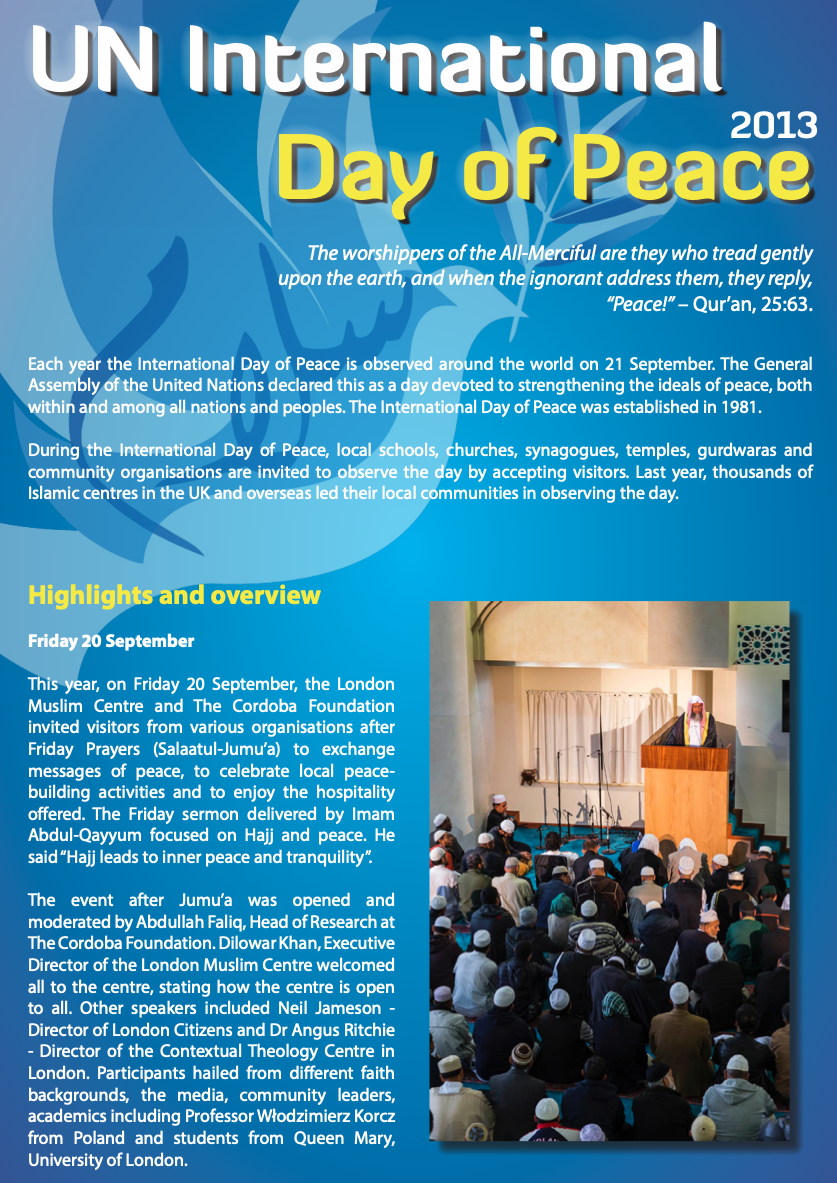
Sep 21, 2012 | News & Press
On the International Day of Peace, 21 September, The Cordoba Foundation (TCF) will be joining other organisations and faith institutions to express solidarity with all efforts intended to make this world more peaceful.
As the day falls on a Friday when Muslims gather for their weekly afternoon Friday Prayers, Salatul-Jumu’a, this year’s celebration will be particularly poignant as mosques and Islamic centres in the UK will open their doors to visitors wishing to join them during or after Friday prayers. People of different faiths and none will exchange messages of peace, celebrate local peace-building and share hospitality. They will be joined by others overseas, some as far as Sri Lanka and Thailand.
Abdullah Faliq, Head of Research at TCF, which has been working on this campaign from the outset, explained: “Unlike launching into war, establishing peace requires a lot of determination and continuous effort. We are delighted that people of all faith and none have come together to mark the International Day of Peace this year with so much vigor and passion.”
In such a turbulent period of global history, TCF Chief Executive, Anas Altikriti, stressed that “peace is not the absence of conflict and violence, but rather the establishment of justice through mutual respect, understanding and acceptance”.
Thus the International Peace Day is a reminder to all of us to find alternatives to what threatens peace and harmony and to provide a space for people to realise their own destinies.
TCF is particularly delighted to release a special edition of its Occasional Papers series, in commemoration of the International Day of Peace. Titled, Sustainable Peace for a Sustainable Future, it features an article by the Grand Mufti of Bosnia-Herzegovina, and messages of support from Dr Rowan Williams, Archbishop of Canterbury; Professor Ekmeleddin Ihsanoglu, Secretary General of the Organisation of the Islamic Corporation (OIC); Jeremy Gilley, Founder of Peace One Day; Catriona Robertson from London Peace Network. The Occasional Papers will be released at a ceremony hosted by Lord Bates to mark the official launch of International Peace Day at Westminister Hall, Houses of Parliament (UK) on Friday 21st September at 11am.
TCF commends London Peace Network (and its partners), for undertaking such an unprecedented initiative of linking UK Islamic centres with other institutions.
Commenting further on this Anas Altikriti, said “We are taught that we do not inherit the earth from our forefathers but we borrow it from our grandchildren. We need to all collectively work towards the promotion of peace and understanding between cultures and civilisations. This initiative is the right and first step and needs all our support”.
[Ends]
Notes to editors:
1. For a full list of participating mosques and Islamic centres, see
http://londonpeacenetwork.wordpress.com
2. Media / general enquiries about International Peace Day:
Catriona Robertson, London Peace Network, 07903 682 142, convener@lbfn.org
Julian Bond, Christian Muslim Forum, 07813 018 450, info@christianmuslimforum.org
Abdullah Faliq, The Cordoba Foundation, 0208 991 3372, abdullah@thecordobafoundation.com
Ali Abbas Razawi, Majlis-e-Ulama Europe, 07894 277 658, sayed.a.r@hotmail.co.uk
3. Link to introductory film
http://www.youtube.com/watch?v=yrF7vSOBSbM&feature=youtu.be
4. For anyother enquries, please contact Amjad Saleem, Head of Communications, The Cordoba Foundation, 020 8991 3370 / media @thecordobafoundation.com
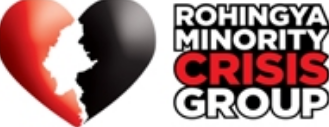
Aug 10, 2012 | News & Press
Call to Action: Rohingyas of Myanmar Need Support
From June 2012, deadly sectarian violence in western Myanmar’s Arakan State between the ethnic Arakan Buddhists and the Rohingya (and non-Rohingya Muslim) communities is part of a long running saga of tension, racism and oppression, which has seen thousands die and hundreds of thousands displaced over the last many decades.
President Thein Sein in July told the United Nations that refugee camps or deportation was the “solution” for the Rohingya.
WHAT CAN WE DO?
This unfolding humanitarian tragedy has an international dimension and requires determined support from all. By applying sustained pressure on the appropriate authorities, through our local
communities, we can bring about change to this apartheid.
This is a human tragedy, and one which affects us all, irrespective of our colour, creed, race or religion. Therefore, please be generous with your
time, wealth and support.
We can all help in raising awareness of the plight of the Rohingya people.
To find out more about what we can do, please click here
To get involved with the campaign, please visit the website of the RMCG
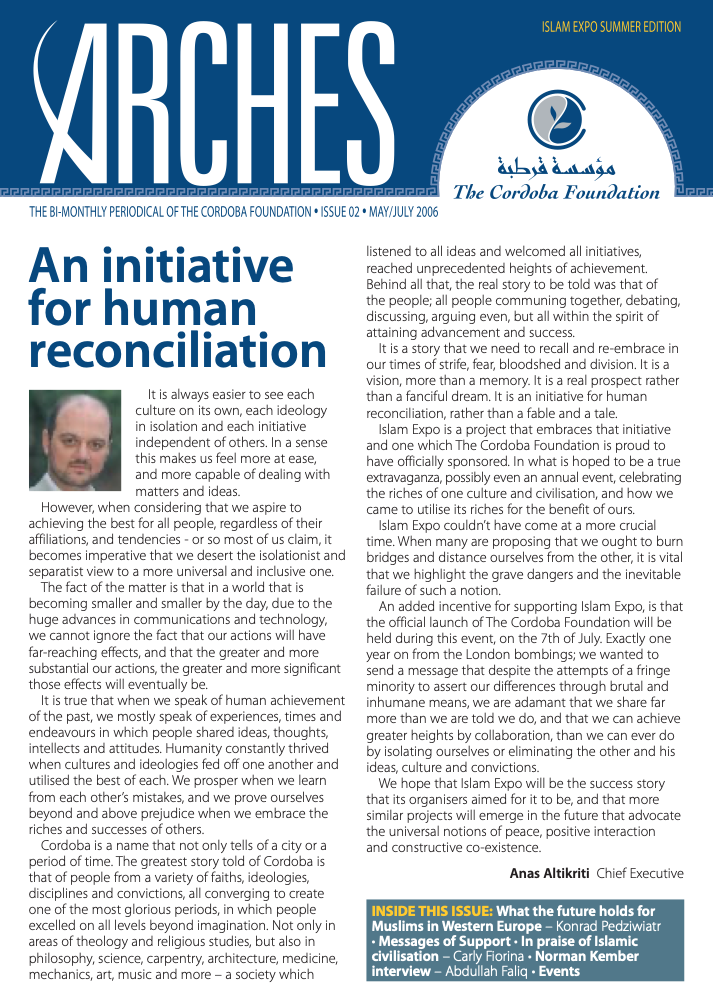
Aug 3, 2012 | News & Press
Faith-based organisations must take a lead in enabling youth to find meaning and purpose in their lives, recommends a report on the riots, which shook London and other cities in England a year ago.
Entitled ‘After the Riots: From Blame to Positive Action’, the report contains the conclusions of a national forum, jointly organised by Initiatives of Change UK, The Cordoba Foundation, Burning2Learn and the Civil Society Forum.
The forum, which was held on 1 February 2012, dealt with the moral and values dimensions of the problem.
The forum brought together some of the principal players, young and old, who were involved directly with the riots, either as perpetrators, victims or people who prevented the riots taking place in their communities.
At the forum, young people were given the chance to air their views and opinions in an open and safe environment and candidly expressed their frustrations about various issues; the relationships with authorities, such as the police, and the lack of job opportunities.
Stressing that ‘this is not the time to despair’, the report states: ‘Throughout Britain, there are seeds of hope. These are sown by community groups and organisations. Out of the bankruptcy of failed regeneration efforts, a new set of organisations are emerging in inner cities. Change and development is taking place at the local levels.’
One of the key segments in the forum, according to the report, was the sharing of initiatives of change, led by individuals and communities. The participants heard case studies of how, against all odds, individuals and communities have created small projects – some even big ones – to tackle issues such as, poverty, gun culture, drugs and unemployment.
The report concludes: ‘All efforts to tackle the root causes of unrest need to take into account these experiences.
‘Solutions to problems abound. The challenge for all of us, particularly decision makers, would be to ensure that such initiatives are sustainable and facilitate similar positive action throughout the country.’ (Don De Silva, Initiatives of Change)
arches2
To read the report, please click here
To find out more about the event, please click here
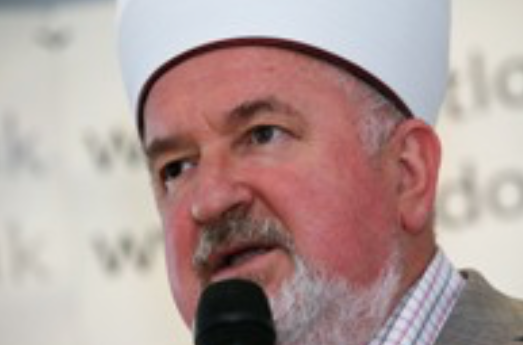
Jul 19, 2012 | News & Press
As the Srebrenica Memorial Day anniversary on the 11th of July approaches its 17th year, we are once again reminded of the lengths that man could potentially go to when immersed in a state of fear, hatred and division.
The Memorial Day puts to rest any naivety that the lessons of the past have not only been learned, but well and truly headed. Not only are human beings chronically capable of committing the most repugnant of acts against fellow human beings, regardless of the advancement of time, the catalysts for these crimes are invariably similar whatever the different and unique circumstances of each.
The Cordoba Foundation has been working tirelessly to raise awareness of the threat man poses against his fellow man, should particular conditions become established on the ground. Whether Srebrenica, Auswitz, Rwanda, Gaza, Kashmir or Somalia, and whether in the last century, this or the one coming, injustice establishes fear which breads suspicion and ultimately hatred. From there, the move on to violence is neither a difficult nor inconceivable step to undertake. Our objective is to work in common collaboration to remove the very initial elements on that tragic path, and to counter the root causes for clashes based on false and misguided understanding and implementation of the concepts of ‘self’ and ‘the other’.
The Srebrenica Memorial Day provides a timely reminder to us all of the challenges that can only be met in a sense of togetherness and community.
The Cordoba Foundation is issuing the special Friday sermon from the Mufti of Bosnia Herzegovinia on this occasion

Jun 20, 2012 | News & Press
Considered to have witnessed the dawn of western civilisation, the medieval city of Cordoba has for centuries been revered for its significant contribution to scholarship and learning. A cultural, economic and political metropolis, Cordoba is world-renowned for providing a haven for persecuted communities, an attribute which travelled far during Cordoba’s golden years.
In the spirit of the significance of the city of Cordoba in medieval times, The Cordoba Foundation in partnership with Muslim Writers Awards is proud to present ‘The Spirit of Cordoba’ prize, awarded to an individual who embodies the essence of Cordoba.
To award this prize, the organisers are inviting members of the public to nominate individuals/groups who have uniquely contributed in analysing the relationship between the east and west in an attempt to open the channels of communication and dialogue between the two. These individuals/groups will strive towards redirecting narratives to correct the presentation of the ‘other’ in an attempt to embody the essence of Cordoba’s peaceful co-existence, today.
Assessed by an esteemed panel of judges headed by The Cordoba Foundation CEO, Anas Altikriti, the prize will be awarded to the individual/group whose work in expressive arts (photography, writing, theatre, art) is proved to have made an impact on the wider society, building a strong following and changing public opinion, creating a media stir and even perhaps helping to change legislation.
Closing date: 20th July
——
The 2012 Muslim Writers Awards welcomes submissions from Muslim writers across the world. We have a broad range of categories from screen play to novel writing to journalism. Our awards ceremony is an opportunity to showcase talent from both published and unpublished writers. We also work with a number of literary agents and publishers who are eager to read and review writing submitted to us.

Mar 12, 2012 | News & Press
 On Thursday 1st of March at the Islamic Cultural Centre, the Cordoba Foundation (TCF) Launched their second in a trilogy of toolkits for community groups titled ‘ Effective Guide to Lobbying and Campaigning’.
On Thursday 1st of March at the Islamic Cultural Centre, the Cordoba Foundation (TCF) Launched their second in a trilogy of toolkits for community groups titled ‘ Effective Guide to Lobbying and Campaigning’.
 The toolkit is designed to build confidence amongst BME community groups to help political engagement. It will serve as a go-to guide for practitioners whereby they can gain benefit from the balance of theory, practical advice and case studies that the guide offers. The toolkit can be the main resource for future training and workshops given by TCF to help cement the points in the guide. Speakers at the launch included Neil Jameson, Moazzam Begg, Aisha Alvi and Jeremy Corbyn, MP. Each spoke from their own experience about the need for people and civil society to be continuously involved in applying pressure collectively.
The toolkit is designed to build confidence amongst BME community groups to help political engagement. It will serve as a go-to guide for practitioners whereby they can gain benefit from the balance of theory, practical advice and case studies that the guide offers. The toolkit can be the main resource for future training and workshops given by TCF to help cement the points in the guide. Speakers at the launch included Neil Jameson, Moazzam Begg, Aisha Alvi and Jeremy Corbyn, MP. Each spoke from their own experience about the need for people and civil society to be continuously involved in applying pressure collectively.
 TCF hopes that the toolkit on ‘Effective Lobbying and Campaigning’ and the one on ‘Engaging with the Media’ will serve as key reference points in the future for practitioners on the ground.
TCF hopes that the toolkit on ‘Effective Lobbying and Campaigning’ and the one on ‘Engaging with the Media’ will serve as key reference points in the future for practitioners on the ground.
For more information, please click here
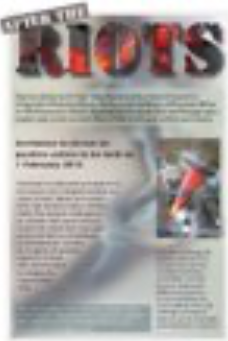
Mar 7, 2012 | News & Press
A former bishop to HM Prisons told a forum held in London that custodial sentences and bail provisions for some of the rioters of last August have been too harsh. Dr Peter Selby, formerly Bishop of Worcester and Bishop to HM Prisons, criticised a ‘system of disregard’ for the wellbeing of disenfranchised young people, which had led to the riots. ‘I am seriously worried that you blight somebody’s whole life for one night of foolishness’ by handing down prison sentences for minor crimes, said Bishop Selby. With 1,400 people in the system still awaiting prosecution and sentencing, ‘there are real grounds for concern. The punitive response to individual rioters, resort to constraint and control and the use of prison disproportionately for the poorest add to up a system of disregard’ for their and society’s welfare, he said.
He was speaking at a conference on ‘After the riots: from blame to positive action’, held at the Initiatives of Change centre in London on 1 February. The forum was organised jointly by Burning2Learn leadership training programme for young people, the Civil Society Forum, The Cordoba Foundation, and Initiatives of Change. It brought together some 100 community and faith leaders and representatives of non-governmental organisations from London, Nottingham, Manchester, Wolverhampton, Glasgow, Ipswich and Norwich.
Welcoming participants on behalf of the organising committee, Don de Silva, Head of Programmes at IofC UK, said the event would be a listening forum. He continued: ‘Many of the individuals here have hands on experience in dealing with critical issues, such as social exclusion, family life, youth offending and community cohesion. The forum aims to bring the values dimension into the riots debate. It will provide a space for dialogue. We will avoid any points scoring. We hope that the forum will encourage everyone to start with themselves, look at their own responsibilities, not just that of the others. We need both personal and systemic change to make a lasting difference.’
The event was kick-started with a short presentation by a group of young people from Croydon, Wolverhampton and Kent. Seventeen-year old Maria said: ‘It is fairly obvious that what has happened has had some really damaging and lasting effects on the persons involved; those who took upon themselves to vandalise and steal and shouldn’t be allowed to get away with it. Do we really have the time to be processing each and every case? Surely, our time would be more productively used ensuring that it doesn’t happen again.’
Clasford Stirling, a community leader from the Broadwater Farm estate in Tottenham, told the conference that ‘the system doesn’t provide for young people. We have four youth groups to deal with 100,000 people. It can’t happen. We need 20 youth clubs.’
The rioters had come together in protest against the police following the shooting of 29-year-old Mark Duggan in Tottenham on 4 August. At first the rioters found it ‘a sense of fun. The looting came afterwards. When you are having fun you don’t care.’ That fun had criminalised them. Politicians hadn’t always obeyed the law either and ‘the rich get richer because they steal’. Describing himself as a disciplinarian and ‘a serious dude’ loved by his children, Stirling admitted that some parents didn’t impose enough discipline.
Dr Selby criticised ‘a system of punitive attitudes’ that disregarded what effect this would have on the welfare of young people and the future of society. He contrasted this with ‘individual acts of over-indulgence at the top’ by some bankers and politicians who ‘bent the rules to their own interests’ and were resistant to regulation and control, and which ultimately led to ‘attacks on the lives of the poor’.
Emphasising that he was never in favour of rioting, Dr Selby said the riots were ‘the result of the economics of disregard that we have all created’. There was a need for systemic changes. ‘I don’t believe that the world will become a better place only by people becoming better people,’ even though this was essential from a Christian perspective. ‘I incline to a systemic view of things.’
‘Individual acts of looting and robbery, resistance to authority and, ultimately, violence against persons add up to a system of disregard,’ which had marginalised too many young people, he said. It was important that we attune our consciences to ‘a moral universe’. ‘If you propagate a system of disregard you are acting outside the guarantees of a moral universe. Last August was a call to live for a system of regard.’ Charlie Ryder, a musician, actor and former prisoner, told how he had served eight months in jail for taking part in a violent demonstration outside a BNP bookshop in 1993. His father’s drinking had had a bad effect on his upbringing, he said. He told the forum that young people needed a sense of forgiveness and healing to retain their sense of self-worth. He now works with the chaplaincy at Wormwood Scrubs Community Chaplaincy, and has collaborated with the Forgiveness Project.
Maxine Cockett, a community leader from the St Ann’s district of inner-city Nottingham, told how she had been part of earlier riots in the 1980s. When the riots of last August reached Nottingham, she urged the rioters to go home before the police found them. ‘We can do something positively,’ said Cockett, one of the organisers of an annual ‘Holding Hands Around St Ann’s’ demonstration of community unity. Every generation needed opportunities. Too many young people leave school at 14 ‘with no stake in their communities’. Greg Davies: ‘The problem with youth clubs is that they are She wanted to work together with others in the community to ‘find solutions’ so that young people are not marginalised and don’t riot. ‘I hope there won’t be any more riots. But I wouldn’t be surprised if we have riots again,’ she said.
Greg Davis, founder of the United Estates in Wythenshawe, Manchester, spoke about the inner-city cultural community centre, which helps to ‘foster a sense of belonging, education and training’. The problem with youth clubs is that they are ‘nice places’ for ‘nice kids’, he said. ‘The kids who most need the support of a youth club are the ones least likely to go. There are issues of class, ethnicity and gender. They need youth clubs for kids who don’t go to youth clubs.’ In the previous generation, traditional figures of respect were teachers, parents, police and faith leaders. Now they faced abuse from kids. ‘Those who can relate and garner respect are now more likely to be sports coaches and dance teachers.’
Ian Montague from the grassroots Glasgow charity FARE (Family Action in Rotherfield and Easterhouse) told how he had grown up in the Gorbals slum area of Glasgow. It had ‘the worst housing project with razor gangs’ and there was a lack of hope and vision, he said. As a teenager he had thought, ‘I can’t change them but I have to do something. Am I my brother’s keeper? Yes!’ Going into education, he launched a community newspaper ‘to irritate those who should be doing something’. Twenty years ago, the Council gave six flats to use for a youth project. The young people took responsibility for this space.
Eighteen months ago the entrepreneur Duncan Bannatyne, of the Dragon’s Den TV series, contributed. They now had assets of £2 million. ‘There is money and there is room!’ commented Montague. ‘We have to find who has got it!’
Mason West, from Alabama, Tennessee, represented EYES (Engage Youth Empowerment Services) in Wolverhampton at the forum. Colour, caste and religion were used as reasons to divide, he said. ‘We need resources to pull together’ and invest in youth, ‘raising their expectations, empowering them, giving them confidence, helping them to find their voice and engage. Once they are plugged into the system they can change it. Then there’s no need to worry about them being radicalised or rebelling.’
Ann Edwards, from the Suffolk village of Wenhaston, said that Suffolk has many of the most deprived areas of the country. ‘Regardless of whether you live in the town or the countryside, how can you engage to make a difference?’ she posed. The villagers had safety concerns about children skateboarding on the main road through the village. Residents located an unused area where they created a skateboard park for the children. This gradually developed to accommodate the needs of the community. £144,000 was raised for a new sports complex, which has tennis and skateboarding facilities integrated for all ages and backgrounds. They also revived a youth club. There has been almost no vandalism as it was very much a community generated project in which everyone took pride. ‘Small, simple ideas can have a big impact on the community,’ she said. Her personal inspiration had come from ‘taking time for quiet reflection every morning, listening for direction and seeking inner peace’.
Closing the forum, Anas Altikriti, Chief Executive of The Cordoba Foundation remarked: ‘What we have learnt today is that the greatest resource and asset we have is people. Society leads us to believe that it is money – stuff – that matters but what really succeeds is a project that places its worth on people and their work. This is the message that we give to the young people today. All of us can make a change. All over the world, we see the resurgence of the youth as a force to transform society. In the Middle East, we were told that young people were lazy and indolent, yet they have been at the forefront of the Arab Spring. Likewise, we tell people here that it is the spirit, endeavours and courage of the youth, that can shift paradigms, and they need to be supported’.
A young rioter commented afterwards: ‘I did not know that there were many people who cared and listened to people like us. This event is a rebirth for me.’
———
(Photos courtesy of: John Leggat)
For more information, please click here
For The Cordoba Foundation thoughts on this issue, please click here
To read the conference report and recommendations, please click here









 On Thursday 1st of March at the Islamic Cultural Centre, the Cordoba Foundation (TCF) Launched their second in a trilogy of toolkits for community groups titled ‘ Effective Guide to Lobbying and Campaigning’.
On Thursday 1st of March at the Islamic Cultural Centre, the Cordoba Foundation (TCF) Launched their second in a trilogy of toolkits for community groups titled ‘ Effective Guide to Lobbying and Campaigning’. The toolkit is designed to build confidence amongst BME community groups to help political engagement. It will serve as a go-to guide for practitioners whereby they can gain benefit from the balance of theory, practical advice and case studies that the guide offers. The toolkit can be the main resource for future training and workshops given by TCF to help cement the points in the guide. Speakers at the launch included Neil Jameson, Moazzam Begg, Aisha Alvi and Jeremy Corbyn, MP. Each spoke from their own experience about the need for people and civil society to be continuously involved in applying pressure collectively.
The toolkit is designed to build confidence amongst BME community groups to help political engagement. It will serve as a go-to guide for practitioners whereby they can gain benefit from the balance of theory, practical advice and case studies that the guide offers. The toolkit can be the main resource for future training and workshops given by TCF to help cement the points in the guide. Speakers at the launch included Neil Jameson, Moazzam Begg, Aisha Alvi and Jeremy Corbyn, MP. Each spoke from their own experience about the need for people and civil society to be continuously involved in applying pressure collectively. TCF hopes that the toolkit on ‘Effective Lobbying and Campaigning’ and the one on ‘Engaging with the Media’ will serve as key reference points in the future for practitioners on the ground.
TCF hopes that the toolkit on ‘Effective Lobbying and Campaigning’ and the one on ‘Engaging with the Media’ will serve as key reference points in the future for practitioners on the ground.

